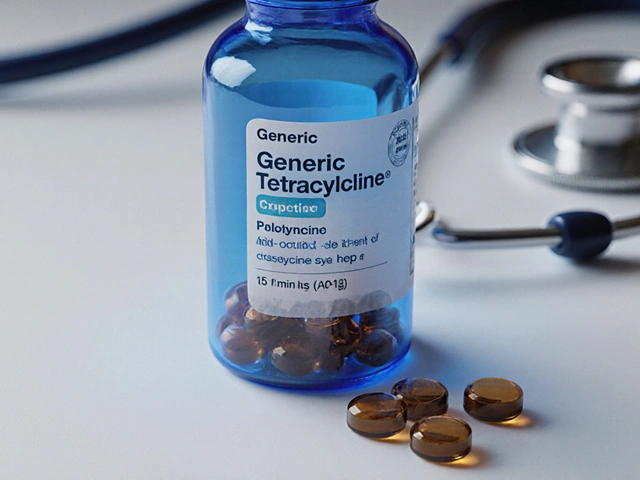The world of heart rhythm disorders isn’t just about stress, caffeine, or late-night Netflix binges that keep your heart racing. Genes are right there in the mix, quietly sketching out the patterns that make your ticker beat normally — or, in the case of supraventricular tachycardia (SVT), way too fast for comfort. It’s kind of wild to think a letter or two in your DNA can decide how your heart’s wiring responds to a stressful Zoom call or a double espresso. But as we keep digging, scientists are finding the story of SVT begins much earlier than your first panic attack, reaching right back to your family tree and those invisible genetic blueprints you inherited at birth.
Genes Set the Stage: The Hidden Script Behind SVT
That pounding in your chest, sometimes out of nowhere, could actually have roots in your genetic makeup. Long before you ever felt a heart flutter, certain versions of genes quietly shaped your heart’s electrical wiring. Supraventricular tachycardia isn’t just a one-size-fits-all condition; the genetics behind it are surprisingly complex. In real life, people get SVT for all sorts of reasons—sometimes after a wild night out, but sometimes just because their DNA sets them up for it. There’s a reason some families keep seeing SVT pop up for generations: researchers have linked mutations in ion channel genes (like SCN5A, KCNQ1, and KCNE1) directly to higher arrhythmia risk. These genes help the heart’s cells communicate through electrical charges, so if the DNA instructions are off, so is the pacing of your heartbeat.
It’s not just about your parents, either. Studies have looked at large numbers of twins and found if one twin has SVT, the chance the other twin will have it is much higher than in non-related people. You’ve probably heard of well-known inherited arrhythmias, like Long QT Syndrome, which is now also linked to certain SVT types. A study in the American Journal of Cardiology even suggested that up to one in five SVT cases might be connected to a known genetic mutation. That’s a statistic you just can’t ignore if you’ve got a close family member who’s ever had sudden palpitations or needed an emergency ablation. Really, genetics turns out to be less of a minor detail and more of a core chapter in your heart’s story.
Family stories count, but it’s the underlying biology that matters. Inside your heart, there’s this microscopic maze of electrical highways connecting the atria and ventricles. Some people are born with an accessory pathway—a little shortcut for electrical signals—because of their genes, and this shortcut is what leads to a classic SVT episode. Think of it like a poorly placed detour on a busy city avenue: traffic gets backed up, and before you know it, chaos. And if you trace that road back far enough, you find a handful of genetic instructions responsible for the detour in the first place.
Everyone’s heart follows the beat—unless a single DNA letter takes a wrong turn. Sometimes it’s just a fluke; sometimes, it’s a family tradition. So if you have SVT, or someone in your family does, it’s worth asking: are we reading from the same genetic script?

Connecting the DNA Dots: Heredity, Risk, and Surprises
Once you realize SVT might be written in your genes, the next obvious question: what does this mean for you and your family? Hereditary patterns are real, but they don’t play out the way most people imagine. Not every gene is a ticking time bomb; some increase your risk by a little, others by a lot, and plenty only matter when teamed up with lifestyle factors (hello, double espresso right before that big meeting). For example, in families with certain inherited arrhythmias, SVT can appear alongside more dangerous conditions—it’s like every relative brings their own twist to the table. Sometimes a parent passes along a variant that means nothing until a child encounters stress, pregnancy, or certain medications.
If you’re wondering if your kids face higher risks, or if you might be quietly carrying an SVT “trigger” in your DNA, you’re not alone. Genetic counseling for arrhythmias has exploded in recent years, with cardiologists and lab techs teaming up to map family trees and hunt for hidden culprits. Gene panels now check dozens of heart rhythm genes in a single test, something that would’ve seemed like pure science fiction a decade ago. These results don’t always bring clear answers, but they do give families a better sense of where they stand. One striking fact: researchers have found certain SVT-causing variants can skip generations or act differently in sons versus daughters. So the pattern isn’t a perfect straight line down your family tree; it can zigzag, pause, and jump around—making it even trickier to predict who’ll get hit next.
And surprises are everywhere. Some people who’ve had SVT and then get genetic testing find out it’s just the beginning: maybe there’s also a risk for atrial fibrillation, or something rarer like Brugada syndrome. And sometimes relatives without a single symptom end up carrying the same mutation. With every new study, the picture gets more tangled. That might sound scary, but it actually means science is giving us more clues, letting families plan and protect themselves earlier than ever. One big tip from doctors: if anyone in your close family has needed a pacemaker, had sudden cardiac arrest, or died unexpectedly young, mention it at your checkup. It could shine a light on risks that have sat quietly in your DNA for decades.
Testing isn’t the last word, though. Genetic information mixes with lifestyle, medications, and sometimes just plain luck. So just because you have the gene doesn’t mean you’ll get SVT (and vice versa). It’s like having a recipe for spicy chili: who knows how hot it’ll actually end up? But the genetic ingredients are there, shaping what’s possible for your heart rhythm—and giving you a new way to think about prevention and family care.

Taking Action: Screening, Prevention, and Family Gameplans
Now that you know genes can set the tone for supraventricular tachycardia, the next step is figuring out what, if anything, you can actually do. The idea of testing your DNA might sound intimidating, but it can offer clarity, especially for families who keep seeing arrhythmias appear. Genetic tests for SVT are done through a simple blood draw or mouth swab. They look for known mutations in genes like SCN5A or PRKAG2, which are linked to specific forms of SVT. Many cardiology clinics now offer these panels as part of arrhythmia workups—especially for those with a strong family history or severe symptoms.
So, who should get checked out? Here’s a practical list, grounded in what top heart clinics actually do:
- If you’ve had repeated unexplained fainting spells that led to ER trips, especially if you were diagnosed with SVT as a teen or young adult.
- If you’ve got a close family member who needed a pacemaker before age 50, died unexpectedly, or was diagnosed with any kind of inherited arrhythmia (like Brugada or Long QT).
- If multiple relatives—even if they seem healthy—have mentioned palpitations, racing heart, or unexplained dizziness.
If you fit any of these, it’s not about panicking; it’s about getting ahead of problems. Genetic counselors can help translate jargon into simple choices, like whether to pursue a full gene panel, check for one specific mutation, or just keep regular checkups a little tighter. Take notes on your family medical history, even awkward stuff like “Uncle Joe fainted at his wedding.” Those little details could help your doctor see a pattern you’d miss.
Then there’s the everyday stuff. Even if you’re genetically prone to SVT, a few simple habits can stack the odds in your favor:
- Share your family history with your doctor—a small chat might mean the difference between an early diagnosis and a scary ER trip.
- Go easy on caffeine and energy drinks; genes may already push your heart, no need to rev the engine further.
- Watch for medications that can trigger SVT: certain asthma inhalers, cold meds, and weight-loss pills can mess with heart rhythms, especially if you’ve got the genetic setup.
- Support your heart with exercise and sleep. Even those with arrhythmia genes do better with regular movement and less stress, according to cardiology research from 2023.
- Talk to your family: the more relatives who know their risks, the sooner they can act if something feels off. Sometimes the best prevention comes from one honest dinner conversation.
Some researchers are even working on gene-targeted therapies for arrhythmias, like tiny molecules that patch up faulty ion channels. While that’s not in your local pharmacy just yet, it’s proof that genetic understanding is exploding. As we learn more, routine genetic screening could become part of every heart checkup—just like blood pressure or cholesterol tests.
Knowledge is power, especially with something as sneaky as SVT. The more you know about your genes, the more you can do to protect your heart—and maybe help your cousins, kids, or siblings avoid those terrifying heart-racing episodes down the road. If you’ve ever wondered why your heart sometimes skips in odd ways, or why your family seems “prone to heart stuff,” it’s time to look at the overlooked story written deep in your DNA.








Aishwarya Sivaraj June 12, 2025
So many people think SVT is just anxiety or too much coffee but its actually in the code like your hair color or height
sharicka holloway June 13, 2025
I work with cardiac patients and this is spot on. Genetics dont care if you meditate or drink green tea. If your DNA has the glitch the heart finds a way to show it. Its not your fault its not your lifestyle its biology
Edward Batchelder June 14, 2025
This is an incredibly well-articulated piece on the genetic underpinnings of supraventricular tachycardia. The integration of molecular biology with familial patterns is both scientifically rigorous and deeply human. I appreciate how the author avoids alarmism while still underscoring the importance of genetic awareness in clinical practice. Truly a model for patient education.
reshmi mahi June 14, 2025
Oh so now its my genes fault i cant drink chai without my heart doing backflips? Cool cool. Next youll tell me my uncle who died at 42 was just unlucky and not because of all that sambar and street food
laura lauraa June 15, 2025
Let me be perfectly clear: this article is dangerously misleading. You're implying that genetic predisposition equals inevitability, which is not only scientifically inaccurate, but also ethically irresponsible. The moment you start attributing arrhythmias to DNA alone, you open the door to genetic determinism, eugenics, and the dehumanization of patients who are told their bodies are broken beyond repair. This is not science-it’s surrender dressed up as insight.
Gayle Jenkins June 15, 2025
If you or someone you love has SVT and you're reading this-you're not alone. There are tools. There are tests. There are people who understand. Don't wait for a crisis to ask your doctor about genetic screening. Write down your family history. Talk to your siblings. This isn't fear-it's power. You have more control than you think.
Kaleigh Scroger June 17, 2025
My mom had SVT since she was 19 and never knew why until she got tested at 52 and found out she carried the KCNQ1 variant. My brother got tested last year and he has it too but he’s asymptomatic so far. The thing is no one talks about this. Doctors just say reduce caffeine and stress and move on. But if you have the gene the caffeine is just the spark not the fire. The fire is in the DNA. And if you have a family history you need to push for testing not just wait for symptoms. I wish someone had told me this when I was 20. Now I tell everyone I know with heart issues to get screened. Its not scary its just information. Knowledge is armor.
Elizabeth Choi June 19, 2025
So you're saying that if your great-grandmother had palpitations, you're doomed? This is the same logic that blamed women for their own heart disease because they 'stressed too much.' Now its genes? Convenient. Lets just hand out DNA tests instead of fixing the healthcare system that ignores people until they collapse.
Darrel Smith June 19, 2025
People are dying because they think this is just a 'heart flutter'-but it's not. It's a warning from your body that your DNA is screaming for help. And what do they do? They give you a beta blocker and tell you to chill out. But your heart isn't anxious-it's wired wrong. And if you don't listen now, one day it won't just race-it'll stop. And then what? Who's gonna fix your broken code then?
Iives Perl June 21, 2025
They’re hiding the real cause. Big Pharma doesn’t want you to know your heart’s glitch can be fixed with frequency therapy. The genes? Just a distraction. The real answer is in the EMFs. Your phone, your WiFi, your smart fridge-they’re syncing with your ion channels and flipping the switch. You think it’s your DNA? Nah. It’s the grid.
Jebari Lewis June 21, 2025
I’ve spent the last three years researching inherited arrhythmias after my cousin had an ablation at 22. The data is overwhelming: over 18% of SVT cases in young adults without structural heart disease show pathogenic variants. The real tragedy isn’t the mutation-it’s the lack of routine screening. We test newborns for phenylketonuria-why not for SCN5A? We have the tools. We just need the will. This isn’t science fiction-it’s standard of care waiting to happen.
Alex Hess June 22, 2025
Wow. Another one of these 'your genes are your destiny' articles. So what? You wrote 2000 words to say your heart is glitchy? I’ve seen better explanations in a 6th-grade biology textbook. This is padding. You’re not educating anyone-you’re just using big words to feel smart.
Asha Jijen June 24, 2025
My grandma used to say her heart was 'dancing' and we all laughed till she passed at 58 from a stroke nobody saw coming. Now I know she had SVT and no one ever checked. So yeah genes matter but so does listening. Stop ignoring your body because it's 'just nerves'
Allison Turner June 24, 2025
It’s funny how people romanticize genetics. You say 'it’s not your fault'-but then you turn around and blame the family for not getting tested. Who’s to blame now? The genes? The doctor? The person who didn’t know to ask? You can’t have it both ways. This isn’t empowerment-it’s guilt wrapped in a lab report.
Savakrit Singh June 26, 2025
Genetic predisposition is a scientific reality. However, the interpretation of these findings must be done with extreme caution, particularly in populations with limited access to follow-up care. To recommend genetic screening without equitable access to counseling and intervention is not progress-it is exploitation under the guise of innovation.
Cecily Bogsprocket June 28, 2025
I’ve sat with people who’ve lived with SVT for decades without a name for what they felt. They thought they were weak, or anxious, or broken. Learning it was genetic didn’t make it easier-but it made it real. And that matters. Because when you know it’s not your fault, you stop blaming yourself and start asking the right questions. And that’s where healing begins-not with a pill, but with understanding.
steve stofelano, jr. June 30, 2025
Thank you for this exceptionally thorough and nuanced exposition on the genetic architecture of supraventricular tachycardia. The integration of molecular genetics with clinical epidemiology, coupled with a compassionate framing of familial risk, represents a paradigm shift in patient-centered cardiology. I shall be sharing this with my department as a model for patient education materials.